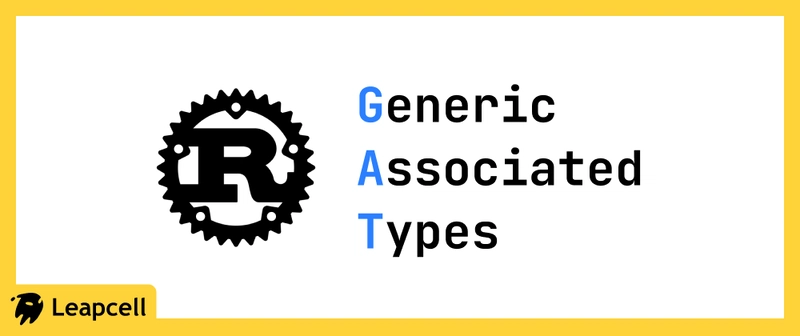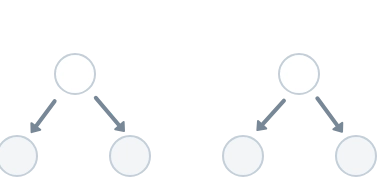15 Best ERP Software of 2025 for Every Business Size and Industry.
In today's fast-paced and highly competitive business environment, staying ahead is more than just having the best product or service. It requires a well-organized, technologically driven operational center. This is the point at which the Enterprise Resource Planning (ERP) software comes in as an innovator. As we enter 2025 ,ERP systems are no longer merely tools for large corporations. With the advancement of technology like artificial intelligence-driven automation, cloud computing, and modular customisation, ERP systems are now readily available and indispensable for entrepreneurs, SMEs, and big companies alike.. If you're responsible for complex supply chains, managing multiple retail outlets, or managing an organization that relies on service, the best ERP system will help you centralize your information to improve decision-making and enable exponential growth. In this article, we've created this list of 24 top ERP software systems of 2025 selected by their quality, scalability, in user experience, as well as the relevance to industry. From the biggest companies in the world to regional leaders such as Softhealer, this list will allow you to find the ideal ERP platform, regardless of the size of your company or sector. Let's look at the technologies that are shaping the future of business management. Why Choosing the Right ERP Software Matters Choosing the best ERP program isn't merely a technical decision, but a strategic investment that will shape your company's future. ERP software is the digital foundation of your business and connect departments, facilitating workflows, and providing real-time information that can help you make better decisions. However, it is true that not every ERP solutions are made equal. The requirements of a manufacturing company differ significantly from the needs of a retailer chain or a service-oriented startup. Therefore, selecting an ERP system that is in line with your business's industry, business size and the growth objectives is essential. Here's why a good ERP software is an absolute must by 2025: 1. Streamlined Operations Effective ERP connects departments such as finance, sales and inventory, HR and customer support, reducing the chance of manual errors, duplication or communication gaps. 2. Informed Decision-Making By ensuring centralized information and live dashboards, ERP systems give leaders precise insights that allow for faster decision-making based on data. 3. Scalability Contemporary ERP systems are designed to adapt to the changing needs of your business. If you're expanding your business with new facilities, services or product lines, your ERP system should be able to grow seamlessly. 4. Compliance & Security By 2025, regulatory compliance and data protection will be a non-negotiable requirement. An efficient ERP assists in maintaining compliance and also keeps your company's data safe. 5. Competitive Edge Companies that automate and optimize their processes are more efficient than those that do not. ERP offers the agility and visibility required to keep you ahead of the market. Making the investment in the appropriate ERP today is the first step for long-term growth, operational excellenc,e along with digitalization in the near future. Criteria for Selection With the plethora of ERP options available on the market, deciding on the top ones for 2025 takes an approach that is strategic. In this selection of 24 best ERP software, we evaluated each one based on an amalgamation of technological quality, business impact, as well as flexibility for users to ensure it is able to meet the various requirements of companies across all industries. Here are the main elements we used to narrow down the best ERP systems for 2025: 1. Feature Set & Modularity We searched to find ERP platforms that provide comprehensive modular solutions, including sales, finance, CRM, inventory, HR, manufacturing, as well as supply chain solutions. This allows businesses to select what they require and grow as they expand. 2. Innovation & Technology ERP systems that rely on cloud-based technology, AI-powered automation, mobile-first capabilities, and live analytics are at an appearance at the top of our lists. We focused on platforms that are future-ready, designed to be agile and able to handle digital transformation. 3. Industry Versatility Solutions that can support different industries--from retail and manufacturing to healthcare and services-- were preferred, particularly ones that can be customized with workflows and specific industry-specific modules. 4. User Experience & Adoption User-friendliness, user-friendly dashboards, and mobile accessibility were key aspects. An ERP can only be efficient if the team is able to utilize it without any training. 5. Scalability & Customization If you're a start-up or a larger enterprise, the ERP must be able to adjust to the size of your company, along with operational complexity and growth in the f
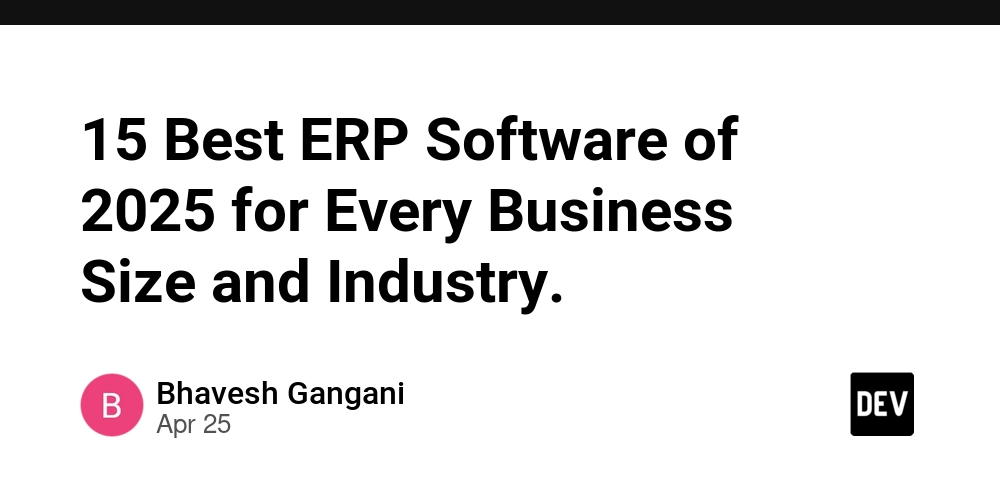
In today's fast-paced and highly competitive business environment, staying ahead is more than just having the best product or service. It requires a well-organized, technologically driven operational center. This is the point at which the Enterprise Resource Planning (ERP) software comes in as an innovator.
As we enter 2025 ,ERP systems are no longer merely tools for large corporations. With the advancement of technology like artificial intelligence-driven automation, cloud computing, and modular customisation, ERP systems are now readily available and indispensable for entrepreneurs, SMEs, and big companies alike..
If you're responsible for complex supply chains, managing multiple retail outlets, or managing an organization that relies on service, the best ERP system will help you centralize your information to improve decision-making and enable exponential growth.
In this article, we've created this list of 24 top ERP software systems of 2025 selected by their quality, scalability, in user experience, as well as the relevance to industry. From the biggest companies in the world to regional leaders such as Softhealer, this list will allow you to find the ideal ERP platform, regardless of the size of your company or sector.
Let's look at the technologies that are shaping the future of business management.
Why Choosing the Right ERP Software Matters
Choosing the best ERP program isn't merely a technical decision, but a strategic investment that will shape your company's future. ERP software is the digital foundation of your business and connect departments, facilitating workflows, and providing real-time information that can help you make better decisions.
However, it is true that not every ERP solutions are made equal. The requirements of a manufacturing company differ significantly from the needs of a retailer chain or a service-oriented startup. Therefore, selecting an ERP system that is in line with your business's industry, business size and the growth objectives is essential.
Here's why a good ERP software is an absolute must by 2025:
1. Streamlined Operations
Effective ERP connects departments such as finance, sales and inventory, HR and customer support, reducing the chance of manual errors, duplication or communication gaps.
2. Informed Decision-Making
By ensuring centralized information and live dashboards, ERP systems give leaders precise insights that allow for faster decision-making based on data.
3. Scalability
Contemporary ERP systems are designed to adapt to the changing needs of your business. If you're expanding your business with new facilities, services or product lines, your ERP system should be able to grow seamlessly.
4. Compliance & Security
By 2025, regulatory compliance and data protection will be a non-negotiable requirement. An efficient ERP assists in maintaining compliance and also keeps your company's data safe.
5. Competitive Edge
Companies that automate and optimize their processes are more efficient than those that do not. ERP offers the agility and visibility required to keep you ahead of the market.
Making the investment in the appropriate ERP today is the first step for long-term growth, operational excellenc,e along with digitalization in the near future.
Criteria for Selection
With the plethora of ERP options available on the market, deciding on the top ones for 2025 takes an approach that is strategic. In this selection of 24 best ERP software, we evaluated each one based on an amalgamation of technological quality, business impact, as well as flexibility for users to ensure it is able to meet the various requirements of companies across all industries.
Here are the main elements we used to narrow down the best ERP systems for 2025:
1. Feature Set & Modularity
We searched to find ERP platforms that provide comprehensive modular solutions, including sales, finance, CRM, inventory, HR, manufacturing, as well as supply chain solutions. This allows businesses to select what they require and grow as they expand.
2. Innovation & Technology
ERP systems that rely on cloud-based technology, AI-powered automation, mobile-first capabilities, and live analytics are at an appearance at the top of our lists. We focused on platforms that are future-ready, designed to be agile and able to handle digital transformation.
3. Industry Versatility
Solutions that can support different industries--from retail and manufacturing to healthcare and services-- were preferred, particularly ones that can be customized with workflows and specific industry-specific modules.
4. User Experience & Adoption
User-friendliness, user-friendly dashboards, and mobile accessibility were key aspects. An ERP can only be efficient if the team is able to utilize it without any training.
5. Scalability & Customization
If you're a start-up or a larger enterprise, the ERP must be able to adjust to the size of your company, along with operational complexity and growth in the future, without a complete overhaul.
6. Customer Feedback & Reputation
We looked at platforms that have consistently high ratings from users and a positive experience during implementation, with strong community support and a long-standing track record of satisfaction with customers.
7. Support & Partner Ecosystem
Support for the program is ongoing, with regular updates, and an extensive partnership network with implementation partners (especially in areas like India, USA, KSA, and UAE) has made it possible to distinguish the top from the other.
24 Best ERP Software of 2025
Let’s dive into the most powerful and business-ready ERP systems that are making waves in 2025. These platforms were selected for their innovation, performance, and ability to support organizations across industries and sizes.
1. Softhealer ERP
A Future-Ready ERP for Smart Businesses
Softhealer ERP leads the pack in 2025 as a versatile, modular, and highly customizable ERP solution designed to meet the needs of businesses in India and globally. Built on the powerful Odoo framework, it’s engineered to deliver streamlined operations with a modern user experience.
Key Features:
Modular setup: Sales, CRM, Inventory, POS, HR, Manufacturing, Accounting, and more.
Cloud-ready with flexible deployment options.
Advanced dashboard and reporting tools for real-time analytics.
Seamless integration with third-party apps and payment gateways.
User-friendly interface with minimal training required.
Industries Served:
Retail, Manufacturing, Healthcare, Auto Parts, Law Firms, Optical Stores, Insurance, and more.
Why It Stands Out in 2025:
Strong localization and compliance support for Indian businesses.
Excellent customer support and implementation assistance.
Smart automation for appointment scheduling, project management, lead tracking, and tender handling.
Best For:
SMEs, startups, and mid-sized enterprises are looking for cost-effective, scalable, and feature-rich ERP software with industry-specific modules and ongoing support.
2. SAP Business One
Trusted ERP for Growing Enterprises
SAP Business One remains a global leader in ERP solutions for small to medium-sized businesses (SMBs) in 2025. It’s a reliable system known for its comprehensive functionality, robust performance, and integration with SAP HANA, delivering powerful insights and efficiency.
Key Features:
Modules for financials, purchasing, inventory, production, CRM, and reporting.
Real-time data access with advanced analytics powered by SAP HANA.
Multilingual and multi-currency support for global operations.
Mobile app for on-the-go access to business operations.
Integration with Microsoft Office and other business tools.
Industries Served:
Manufacturing, Wholesale Distribution, Retail, Professional Services, Consumer Products.
Why It Stands Out in 2025:
Backed by SAP’s strong ecosystem and continuous innovation.
Scalable for businesses transitioning from small to mid-market.
Cloud or on-premise deployment options with enhanced data security.
Best For:
Businesses that need a globally recognized, scalable ERP solution with deep functionality and enterprise-grade tools.
Oracle NetSuite
3. Cloud ERP Leader
for Growing and Global Businesses
Oracle NetSuite continues to dominate in 2025 as a fully cloud-based ERP solution trusted by over 36,000 businesses worldwide. It’s designed for rapid growth, global scalability, and end-to-end business management, making it ideal for startups to mid-market enterprises.
Key Features:
Unified suite covering financials, CRM, inventory, order management, eCommerce, and HR.
Real-time analytics and customizable dashboards.
Multi-subsidiary, multi-language, and multi-currency support.
Robust automation for billing, procurement, and reporting workflows.
Scalable modules for industry-specific needs.
Industries Served:
SaaS, eCommerce, Manufacturing, Wholesale Distribution, Professional Services, Nonprofits.
Why It Stands Out in 2025:
100% cloud-based with automatic upgrades and strong uptime.
Extensive global capabilities and compliance support.
Ideal for businesses with complex, multi-location operations.
Best For:
High-growth companies and global businesses need a powerful, flexible, and cloud-native ERP to support their expansion.
4. Microsoft Dynamics 365 Business Central
*Smart ERP for Agile Businesses
*
Microsoft Dynamics 365 Business Central is a modern, cloud-based ERP solution tailored for small and mid-sized businesses looking to streamline their operations and accelerate growth. Integrated with the Microsoft ecosystem, it offers a familiar interface and seamless productivity.
Key Features:
Unified platform for finance, sales, purchasing, inventory, and project management.
Native integration with Microsoft 365, Teams, and Power BI.
AI-powered insights for forecasting and decision-making.
Built-in automation for accounting and supply chain workflows.
Scalable architecture with flexible customization.
Industries Served:
Retail, Professional Services, Distribution, Manufacturing, and Finance.
Why It Stands Out in 2025:
Exceptional user experience and rapid deployment.
Easily connects with third-party apps through Microsoft AppSource.
Continuous updates and cloud-native innovation from Microsoft.
Best For:
Businesses that want a flexible, user-friendly ERP with deep Microsoft integration and strong business intelligence tools.
5. Zoho ERP (Zoho One)
All-in-One ERP for Small Businesses
Zoho ERP, part of Zoho One, is an affordable and comprehensive solution for small to medium-sized businesses that need a unified system for operations. It’s a popular choice in 2025 for its extensive feature set and affordable pricing, making it ideal for businesses on a budget looking for scalability.
Key Features:
All-in-one suite for CRM, finance, HR, inventory, project management, marketing, and more.
Customizable workflows and automation for business processes.
Mobile app for managing operations from anywhere.
Advanced analytics and reporting tools powered by Zoho Analytics.
Integration with over 40 third-party applications, including Google Workspace and Microsoft.
Industries Served:
Retail, Manufacturing, eCommerce, Healthcare, Consulting, Nonprofits.
Why It Stands Out in 2025:
Cost-effective for startups and small businesses.
High degree of customization and integration capabilities.
Regular updates and a strong ecosystem of Zoho apps.
Best For:
Businesses that need an affordable, all-in-one ERP solution with advanced automation and strong integration features.
6. Infor CloudSuite Industrial
ERP for Manufacturing Excellence
Infor CloudSuite Industrial is an industry-specific ERP solution designed to meet the needs of manufacturers. With its powerful cloud capabilities and industry-tailored features, it’s one of the best ERP choices for manufacturing companies looking to modernize their operations in 2025.
Key Features:
Comprehensive modules for manufacturing, inventory, supply chain, financials, and HR.
Advanced analytics powered by Infor Birst for better decision-making.
Industry-specific capabilities tailored for discrete, process, and mixed-mode manufacturers.
Supply chain optimization tools to streamline procurement, production, and distribution.
Cloud-based platform offering flexibility and scalability with low IT overhead.
Industries Served:
Manufacturing, Industrial Equipment, Aerospace, Automotive, Electronics, Food & Beverage.
Why It Stands Out in 2025:
Deep specialization in manufacturing with unique features tailored for the sector.
Seamless integration with other Infor applications for a complete solution.
Strong data security and cloud compliance, making it ideal for global operations.
Best For:
Manufacturers looking for a specialized, cloud-based ERP with advanced analytics, supply chain optimization, and industry-focused capabilities.
7. Sage Business Cloud X3
Agile ERP for Growing Businesses
Sage Business Cloud X3 is a comprehensive ERP solution designed for mid-sized businesses looking to streamline operations, improve productivity, and scale. With its ability to handle complex business needs, Sage X3 is a perfect solution for industries like manufacturing, distribution, and services in 2025.
Key Features:
Integrated modules for financial management, inventory, supply chain, production, CRM, and HR.
Real-time reporting and business intelligence for better decision-making.
Multi-currency, multi-language, and global compliance capabilities.
Mobile accessibility for managing operations on-the-go.
Flexible deployment options, including on-premise and cloud-based.
Industries Served:
Manufacturing, Distribution, Retail, Professional Services, Food & Beverage, Wholesale.
Why It Stands Out in 2025:
Flexible and scalable for growing businesses with complex needs.
Strong user interface with intuitive navigation.
Focus on real-time insights and operational efficiency.
Best For:
Medium-sized businesses in need of a flexible ERP solution to streamline operations and support growth with advanced reporting and business intelligence tools.
8. Acumatica Cloud ERP
Scalable ERP for Agile Companies
Acumatica Cloud ERP offers a cloud-first solution for growing businesses, providing a flexible, scalable, and cost-effective ERP to meet the evolving needs of modern organizations. With a strong focus on automation, integration, and user experience, Acumatica is an excellent choice for companies looking to improve operational efficiency in 2025.
Key Features:
Complete suite of financial management, distribution, project management, manufacturing, and CRM modules.
Cloud-based architecture with flexible deployment options.
Intuitive dashboards and real-time reporting with deep analytics.
Built-in workflow automation to streamline business processes.
Open APIs and integration with third-party apps and business tools.
Industries Served:
Manufacturing, Retail, Wholesale Distribution, Professional Services, Construction.
Why It Stands Out in 2025:
Strong focus on cloud computing and automation for efficiency.
Scalable for businesses of all sizes, with modules that can be added as the business grows.
Excellent integration capabilities with a range of third-party tools.
Best For:
Mid-market companies seeking a flexible, cloud-first ERP solution that provides scalability, automation, and advanced reporting capabilities.
9. Epicor ERP
Tailored ERP for Manufacturing and Distribution
Epicor ERP is a highly specialized ERP solution designed for manufacturers and distributors in a wide range of industries. Known for its industry-specific functionality and ability to streamline complex operations, Epicor stands out as a powerful choice in 2025 for companies looking to optimize their supply chain, production, and inventory management.
Key Features:
Manufacturing-focused modules for production planning, inventory management, quality control, and supply chain.
Cloud and on-premise deployment options for maximum flexibility.
Advanced business intelligence and real-time reporting for decision-making.
Integrated eCommerce and mobile access for managing business operations remotely.
Strong integration with third-party applications, including HR and CRM tools.
Industries Served:
Manufacturing, Retail, Distribution, Aerospace, Automotive, Consumer Goods, Food & Beverage.
Why It Stands Out in 2025:
Highly specialized for manufacturing and distribution with advanced supply chain optimization.
Flexible deployment options with robust cloud features.
Real-time data and analytics to support smarter decisions.
Best For:
Manufacturers and distributors looking for a flexible ERP with strong manufacturing and supply chain management capabilities, especially those in mid-market and large enterprises.
10. SAP S/4HANA
Intelligent ERP for Enterprise-Scale Businesses
SAP S/4HANA is a next-generation ERP designed for large enterprises with complex business processes. This intelligent ERP integrates advanced technologies like AI, machine learning, and IoT, providing businesses with the tools they need to drive digital transformation and achieve operational excellence in 2025.
Key Features:
Comprehensive modules for finance, supply chain, manufacturing, sales, HR, and procurement.
Real-time data processing powered by SAP HANA for faster analytics and decision-making.
AI and machine learning capabilities to automate processes and improve insights.
Flexible cloud deployment with integration to on-premise systems.
Advanced user interface with personalized dashboards and predictive analytics.
Industries Served:
Manufacturing, Retail, Automotive, Energy, Financial Services, Consumer Goods.
Why It Stands Out in 2025:
Built for large enterprises with a focus on intelligent automation and real-time decision-making.
AI-powered analytics and predictive capabilities drive smarter business strategies.
Seamless integration with other SAP products for a complete digital transformation suite.
Best For:
Large enterprises that need a powerful, scalable ERP with advanced AI capabilities, real-time data processing, and end-to-end integration.
11. Odoo ERP
Flexible ERP with Open-Source Advantages
Odoo ERP is one of the most flexible and cost-effective ERP solutions available, especially for small to mid-sized businesses. With its open-source framework, Odoo offers a highly customizable system that can be tailored to the unique needs of almost any business, whether it's in retail, manufacturing, or services.
Key Features:
Modular ERP system offering apps for CRM, inventory, finance, HR, manufacturing, and eCommerce.
Open-source codebase for complete customization.
Cloud or on-premise deployment options.
Integrated project management tools and real-time analytics.
Active community contributing to continuous improvements and customizations.
Industries Served:
Manufacturing, Retail, eCommerce, Services, Wholesale Distribution, Healthcare.
Why It Stands Out in 2025:
Open-source nature allows for deep customization and flexibility.
Affordable pricing compared to larger ERP systems.
Comprehensive suite of business applications that can be tailored and scaled.
Best For:
Small to mid-sized businesses that need a highly customizable, affordable ERP with a focus on modular functionality and flexible deployment.
12. Syspro ERP
Scalable ERP for Manufacturers and Distributors
Syspro ERP is a robust ERP solution designed to cater to the needs of manufacturers and distributors, offering extensive capabilities for inventory management, supply chain optimization, and financials. It provides businesses with a scalable, user-friendly, and cost-effective solution to manage operations effectively in 2025.
Key Features:
Comprehensive suite for manufacturing, inventory, financial management, and supply chain.
Cloud-based and on-premise deployment options for flexible implementation.
Advanced analytics and reporting tools for real-time insights.
Industry-specific features for manufacturing and distribution sectors.
Highly customizable with integrations to third-party software.
Industries Served:
Manufacturing, Distribution, Food & Beverage, Electronics, Automotive, Retail.
Why It Stands Out in 2025:
Flexible deployment options with robust cloud and on-premise solutions.
Focus on manufacturing and distribution, making it ideal for industries needing specialized features.
Scalable to meet the needs of both small businesses and large enterprises.
Best For:
Manufacturers and distributors are looking for a scalable, user-friendly ERP with industry-specific features and strong analytics.
13. NetSuite ERP
Leading Cloud ERP for Growing and Global Businesses
NetSuite ERP, a product of Oracle, is a leading cloud-based ERP solution used by businesses of all sizes. It is particularly well-suited for growing and global organizations due to its scalability, real-time reporting, and comprehensive financial management features. As one of the top ERP systems in 2025, NetSuite helps businesses manage everything from finance and supply chain to customer relationships in a unified platform.
Key Features:
Financial management, CRM, inventory, order management, and human resources modules.
Real-time analytics and business intelligence for data-driven decision-making.
Multi-currency and multi-language capabilities, making it ideal for global operations.
Seamless integration with Oracle products and other third-party apps.
Customizable workflows and automated processes to improve operational efficiency.
Industries Served:
Retail, Manufacturing, eCommerce, Wholesale Distribution, Software, Healthcare, Nonprofit.
Why It Stands Out in 2025:
Comprehensive cloud-based suite with end-to-end functionality across all business operations.
Strong focus on global scalability, with features designed to support businesses across multiple countries.
Real-time visibility into financials and operations enhances business decision-making.
Best For:
Growing and global businesses seeking a comprehensive, scalable cloud ERP with advanced financial management and real-time insights.
14. Microsoft Dynamics 365
All-in-One Business Management Suite
Microsoft Dynamics 365 is a comprehensive cloud-based ERP and CRM platform designed to help businesses improve efficiency, drive growth, and optimize operations. With its integration with other Microsoft products, such as Azure and Office 365, Dynamics 365 is perfect for businesses looking for seamless collaboration and advanced AI capabilities in 2025.
Key Features:
ERP and CRM integration for a unified approach to business management.
Real-time data analytics powered by Microsoft Azure for faster decision-making.
Advanced AI and machine learning tools to optimize processes and predict trends.
Strong integration capabilities with Microsoft tools like Excel, Teams, and Outlook.
Customizable workflows and automation for streamlined operations.
Industries Served:
Retail, Manufacturing, Finance, Professional Services, Healthcare, Technology, Government.
Why It Stands Out in 2025:
Integration with other Microsoft tools provides a seamless experience across various business functions.
AI-driven insights to enhance productivity and optimize business operations.
Scalable for businesses of all sizes, with modular capabilities that can be tailored to specific needs.
Best For:
Companies seeking an integrated ERP and CRM system with AI capabilities and a focus on collaboration and scalability.
15. FinancialForce ERP
Cloud ERP for Financial Management and Services
FinancialForce ERP is a cloud-based ERP specifically designed for businesses seeking to enhance their financial management and services automation. Built on the Salesforce platform, it provides a unified solution for financial operations, project management, and CRM to help businesses achieve financial clarity and efficiency in 2025.
Key Features:
Integrated financial management with accounting, procurement, and revenue recognition.
Built on Salesforce for CRM integration and unified customer data management.
Real-time financial visibility and analytics to drive decision-making.
Automated project management features to streamline workflows and enhance productivity.
Multi-currency and multi-language support, making it suitable for global businesses.
Industries Served:
Professional Services, Financial Services, Healthcare, Nonprofit, Technology.
Why It Stands Out in 2025:
Cloud-based architecture with strong financial management and CRM integration.
Deep focus on service-based businesses with built-in project and revenue management tools.
Real-time reporting and analytics to support better financial decision-making.
Best For:
Service-based companies, especially those in professional services and financial industries, need an integrated financial management solution with project management capabilities.
How to Choose the Right ERP for Your Business
Choosing the right ERP for your business is a crucial decision that can have long-lasting effects on your company’s efficiency, scalability, and overall success. Here are the key considerations to keep in mind when selecting an ERP system for your business:
Considerations to Keep in Mind:
Business Size:
The size of your business plays a significant role in choosing an ERP system. Small businesses may not need the same robust features that large enterprises require. Opt for an ERP solution that fits your current needs but can scale as you grow.
Industry Needs:
Certain industries, like manufacturing, retail, healthcare, and distribution, have unique operational needs. Choose an ERP system that either specializes in or can be customized to fit the requirements of your industry. Many ERP solutions are designed specifically for certain sectors, providing more tailored features.
Budget:
ERP systems can be a significant investment, so it’s important to choose a solution that aligns with your budget. While cloud-based ERP systems often have a lower initial cost, on-premise systems may require higher upfront investment but offer more control over infrastructure.
Support and Maintenance:
Look for an ERP system that offers strong customer support and easy access to maintenance resources. A reliable support team and regular updates are critical for ensuring the smooth functioning of your ERP over time.
Cloud vs On-Premise:
Cloud ERP:Offers flexibility, scalability, and remote access. It’s usually lower in upfront costs and easier to maintain as updates are handled by the provider.
On-Premise ERP:Provides more control over your data and infrastructure. It may be a better option for businesses with specific security or customization needs.
Scalability and Integration:
Choose an ERP that can scale as your business grows. It should also seamlessly integrate with existing systems like CRM, HRM, or accounting software. Integration capabilities are important to ensure smooth data flow across different departments and systems.
Future of ERP Software: What to Expect Beyond 2025
As we look beyond 2025, the ERP landscape is expected to evolve rapidly, with new technologies and innovative features driving efficiency and productivity. Here’s what you can expect in the future:
AI and Machine Learning in ERP:
Artificial Intelligence (AI) and machine learning will become integral parts of ERP systems. These technologies will enable ERPs to predict trends, automate workflows, and provide intelligent insights to help businesses make data-driven decisions faster.
More Industry-Specific ERP Verticals:
The future will see more ERP systems tailored to specific industries. With businesses requiring specialized tools to address unique challenges, ERP solutions will continue to evolve to meet the demands of niche sectors like healthcare, construction, and logistics.
Deeper Mobile and IoT Integration:
Mobile access will become more sophisticated, allowing users to manage business operations from anywhere. Additionally, IoT (Internet of Things) integration will enable ERPs to communicate with devices and equipment, streamlining operations and enhancing data collection.
Automation-First Approach:
The focus will shift toward automation-first ERP systems. ERPs will handle tasks such as invoice processing, inventory management, and order processing automatically, reducing manual work and increasing operational efficiency.
Conclusion
Selecting the right ERP system is a vital step for your business’s growth and long-term success. Whether you're a small business looking to streamline operations or a large enterprise seeking scalability, the right ERP can make a world of difference. By considering factors such as business size, industry, budget, and integration needs, you can make an informed decision that supports your goals.
We encourage you to explore demos and free trials of the ERP systems that stand out to you. Testing out the software will help you better understand its functionalities and whether it aligns with your business requirements.
If you’re still unsure or would like expert guidance, feel free to request a consultation or demo. We’re here to help you choose the best ERP solution for your business!





















































































































































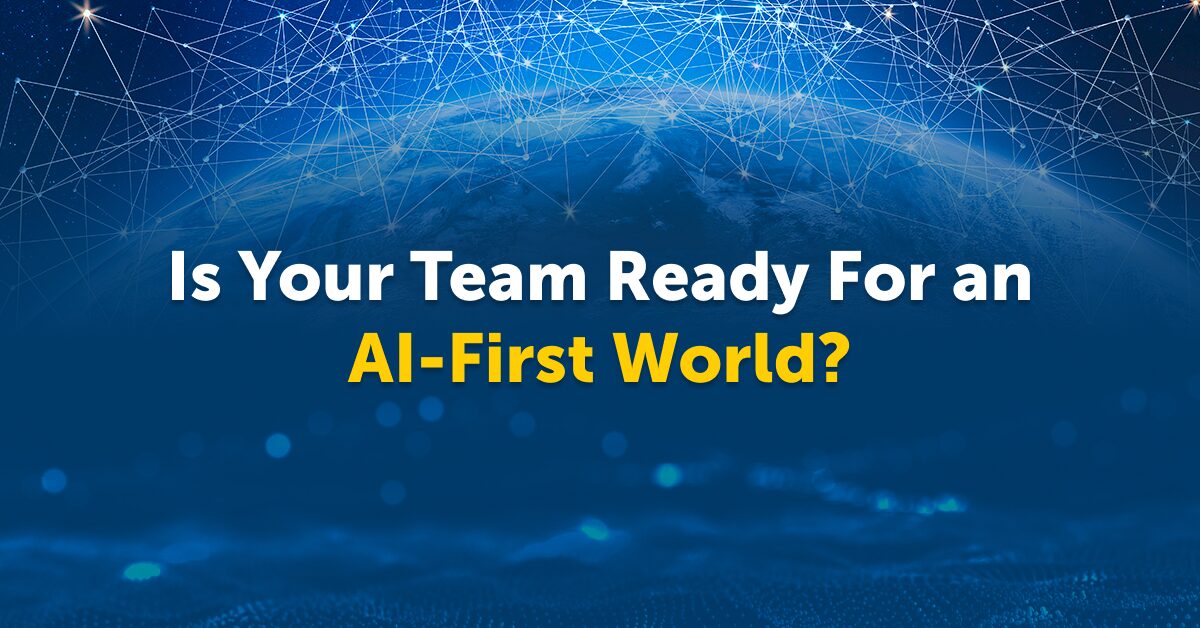




















![[The AI Show Episode 144]: ChatGPT’s New Memory, Shopify CEO’s Leaked “AI First” Memo, Google Cloud Next Releases, o3 and o4-mini Coming Soon & Llama 4’s Rocky Launch](https://www.marketingaiinstitute.com/hubfs/ep%20144%20cover.png)















































































































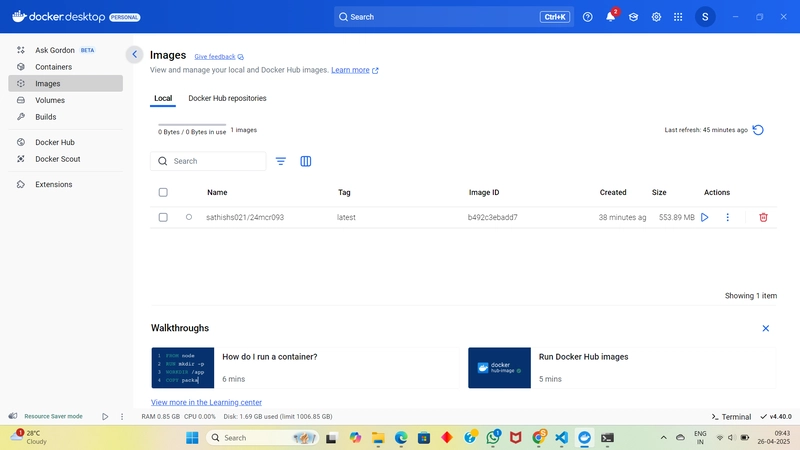
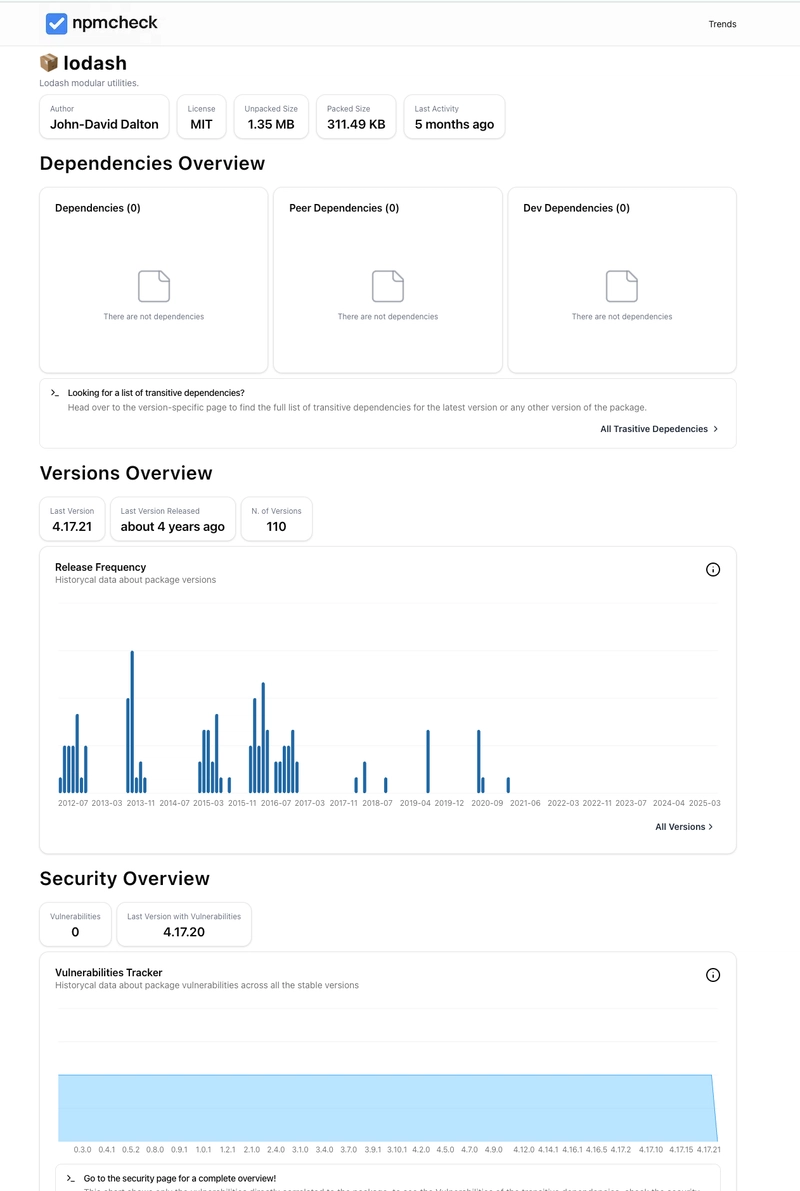

































































.jpg?width=1920&height=1920&fit=bounds&quality=70&format=jpg&auto=webp#)








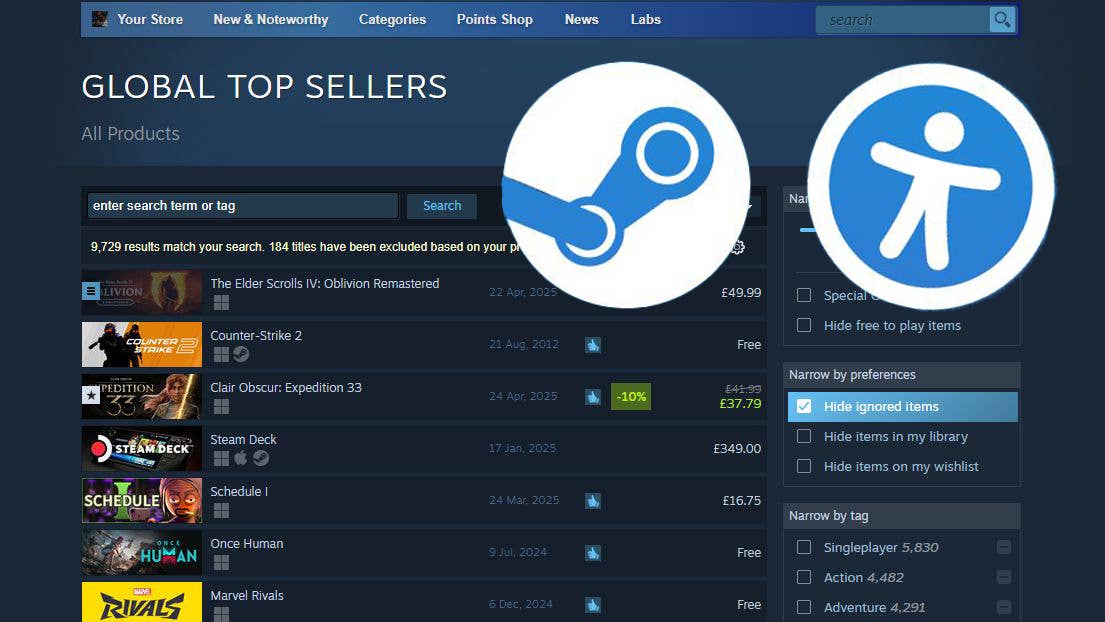














































































_Olekcii_Mach_Alamy.jpg?width=1280&auto=webp&quality=80&disable=upscale#)







































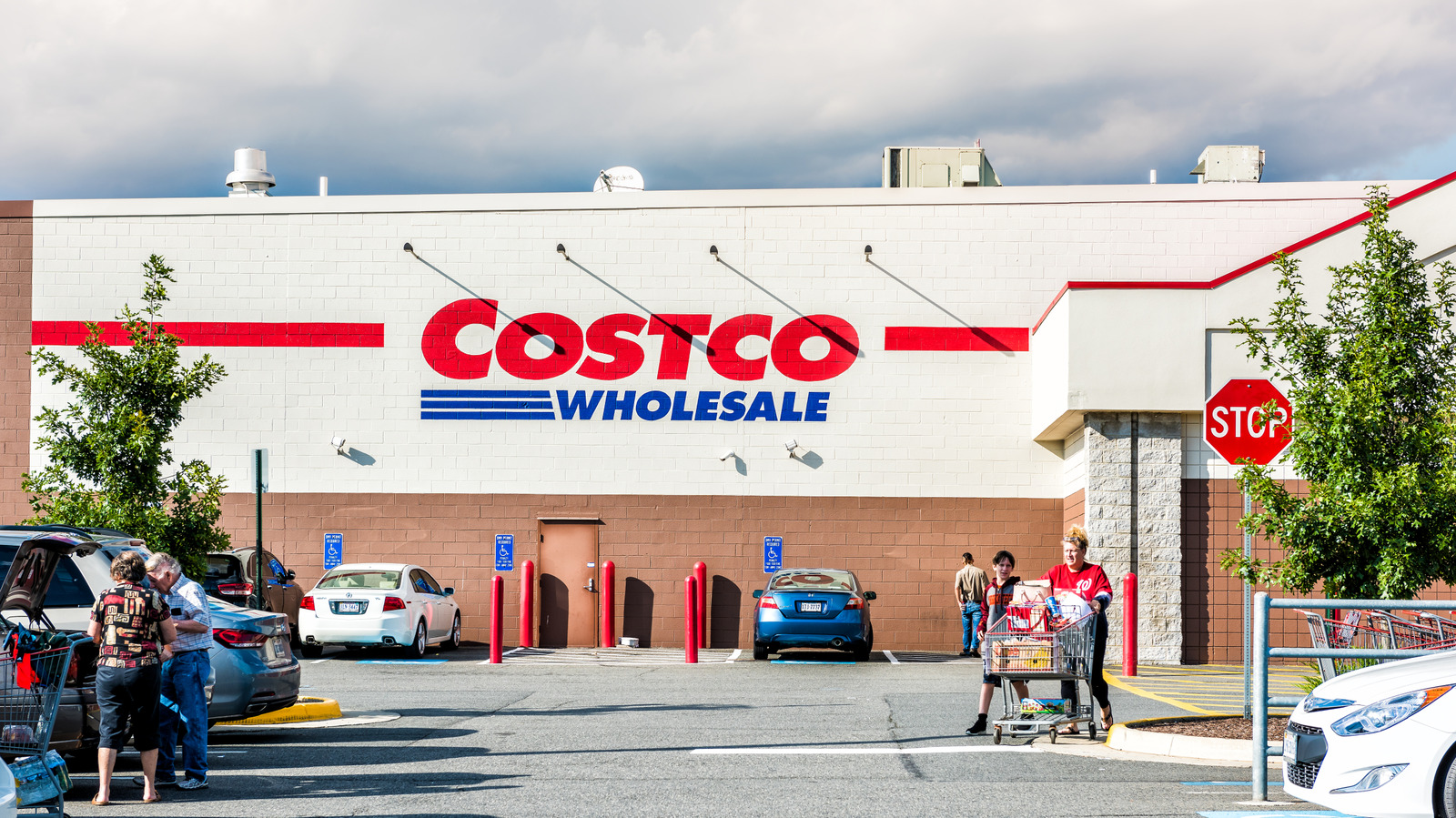













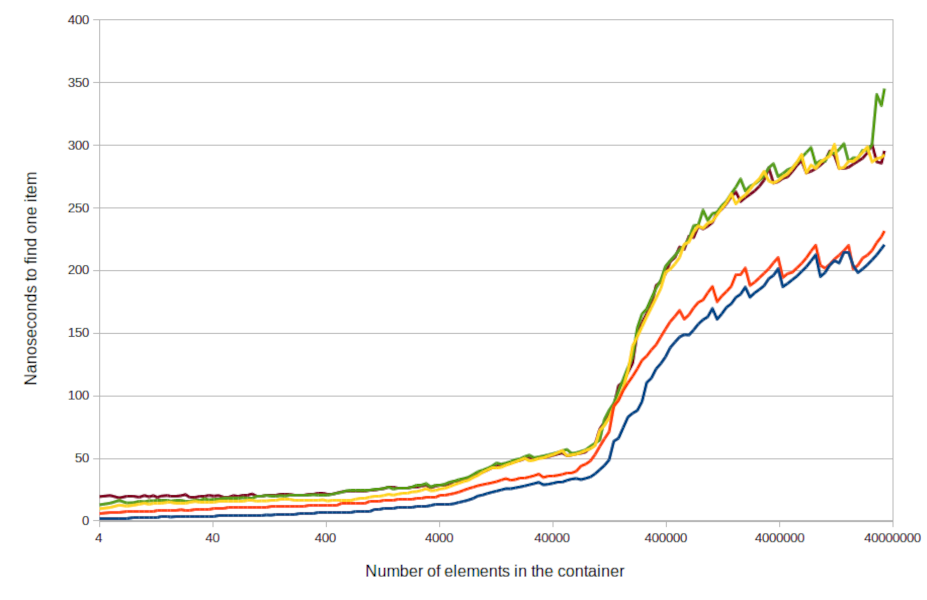






























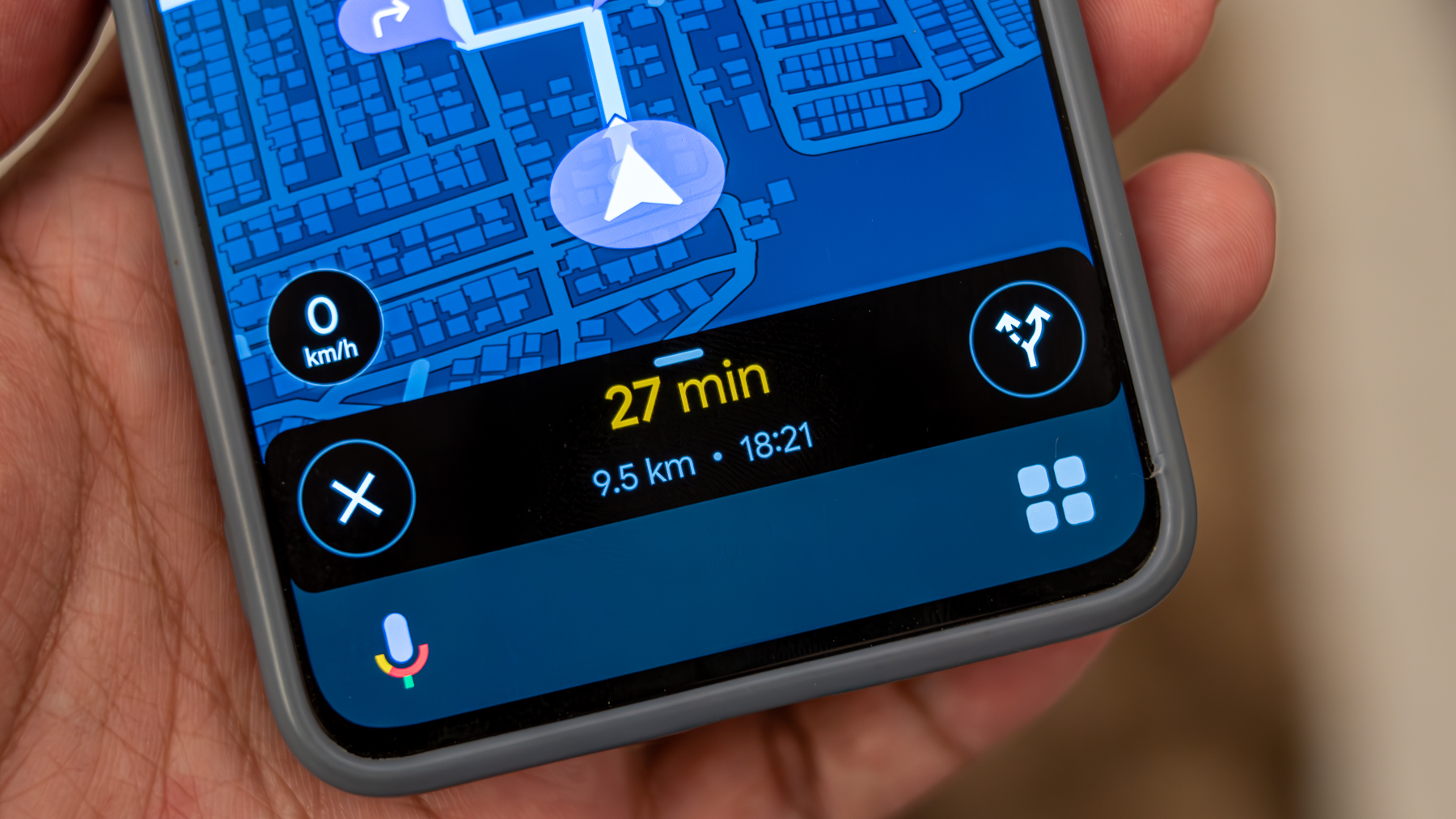


























![Apple Drops New Immersive Adventure Episode for Vision Pro: 'Hill Climb' [Video]](https://www.iclarified.com/images/news/97133/97133/97133-640.jpg)
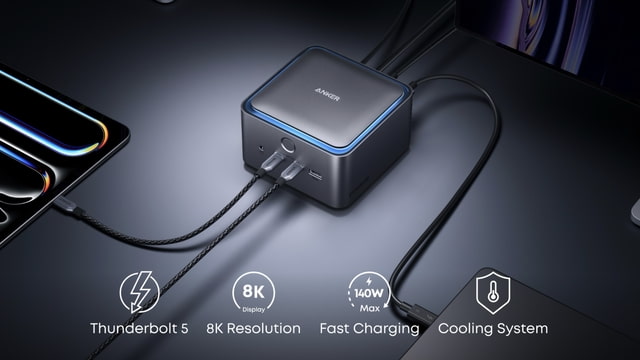
![Most iPhones Sold in the U.S. Will Be Made in India by 2026 [Report]](https://www.iclarified.com/images/news/97130/97130/97130-640.jpg)
![Apple to Shift Robotics Unit From AI Division to Hardware Engineering [Report]](https://www.iclarified.com/images/news/97128/97128/97128-640.jpg)




























































































































